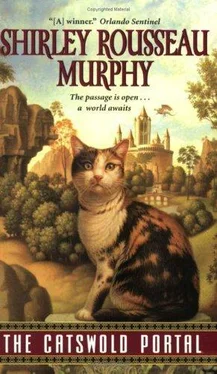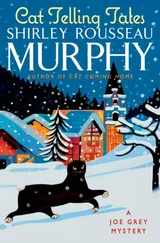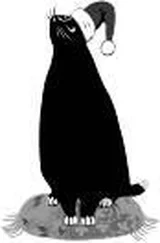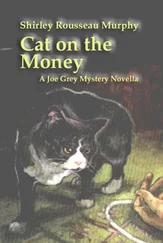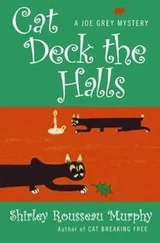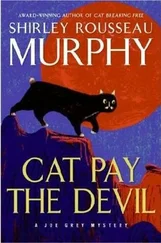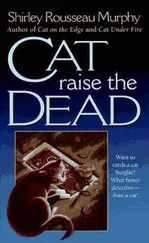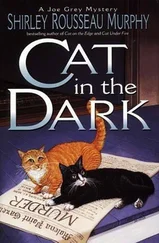Shirley Murphy - The Catswold Portal
Здесь есть возможность читать онлайн «Shirley Murphy - The Catswold Portal» весь текст электронной книги совершенно бесплатно (целиком полную версию без сокращений). В некоторых случаях можно слушать аудио, скачать через торрент в формате fb2 и присутствует краткое содержание. Год выпуска: 2005, ISBN: 2005, Издательство: HarperCollins, Жанр: Старинная литература, на английском языке. Описание произведения, (предисловие) а так же отзывы посетителей доступны на портале библиотеки ЛибКат.
- Название:The Catswold Portal
- Автор:
- Издательство:HarperCollins
- Жанр:
- Год:2005
- ISBN:9780060765408
- Рейтинг книги:4 / 5. Голосов: 1
-
Избранное:Добавить в избранное
- Отзывы:
-
Ваша оценка:
- 80
- 1
- 2
- 3
- 4
- 5
The Catswold Portal: краткое содержание, описание и аннотация
Предлагаем к чтению аннотацию, описание, краткое содержание или предисловие (зависит от того, что написал сам автор книги «The Catswold Portal»). Если вы не нашли необходимую информацию о книге — напишите в комментариях, мы постараемся отыскать её.
The Catswold Portal — читать онлайн бесплатно полную книгу (весь текст) целиком
Ниже представлен текст книги, разбитый по страницам. Система сохранения места последней прочитанной страницы, позволяет с удобством читать онлайн бесплатно книгу «The Catswold Portal», без необходимости каждый раз заново искать на чём Вы остановились. Поставьте закладку, и сможете в любой момент перейти на страницу, на которой закончили чтение.
Интервал:
Закладка:
They had arrived early; Rhain was still with a client. Braden sat on the leather couch facing the window, reading a newspaper clipping that the blond secretary had given him when they arrived. It was Mettleson’s review of the show. He looked up at Melissa and grinned. “‘…Symphonic mystery…West’s best work to date.’” He handed her the clipping. “You’ll like the ‘beautiful and elusive young woman’ part.”
“Is he always so right?”
“Not always,” he said, laughing.
Rhain came out with an elderly woman dressed in a stiff navy suit. He ushered her out, then led them into his office. They sat at the conference table, and he pushed a thick file across to them.
“These are the financial particulars of Lillith Corporation. This is a preliminary report only, a collection of letters, cables, bank statements, summonses, court documents, legal research. You can take it, go over it at your leisure.” Rhain paused, looking them over. “What you have in mind will not be easy.”
“But it can be done?” Melissa asked, watching him.
“I think we might do it. We won’t be sure until we get deeper into it, but I think we can do it.” He smiled. “I know the Kitchens will be pleased. Of course you know you could start from scratch more easily.”
She said, “We want to do it this way.”
Rhain nodded. “The Alice Kitchen West Foundation. Yes, the Kitchens will be pleased.”
Braden said, “Thanks for the review of the show.”
Rhain smiled. “I liked the show. There was a second news release, too. But not about the show.”
As he leaned back, his red hair caught the light. “I have a friend at the Museum of History. He showed me a release he prepared last week, a bit of publicity meant for a feature article. I—persuaded—him this wasn’t worthwhile publicity, that perhaps the whole project was not worthwhile. I told him that perhaps the museum would fare better by accepting, say, some donated antiques?
“He let me keep the article. There is no other copy.” Rhain picked up a plain file and withdrew a single sheet.
September 28, 1957:
A medieval carving valued at possibly half a million dollars drew the attention of museum experts this week. The oak door, carved with the faces of cats, stands in a Marin County garden. It came to the attention of Field West Museum Director Suel Jenkins while he was searching the museum archives. Jenkins found nine photostats of drawings of the door done by Bay Area artist Alice Kitchen shortly before she died in 1955. She was the wife of painter Braden West. Mrs. West had asked the previous director to investigate the authenticity of the door, but after her death the project was shelved.
Dr. Jenkins said the door is a fine example of tenth century Celtic art. It has long stood in the weather, enclosing a hillside cave where garden tools are stored. He had no idea why such a valuable door would be left outdoors, in the elements. He said the wood and the carvings are in remarkably good condition. Notations by the previous director, Dr. Lewis Langleno, indicate that the owner of the door and of the property on which it stands is retired Marin librarian and local author Olive Cleaver.
The museum is now in the process of making an offer on the door. They have photographed it, and with Miss Cleaver’s permission they will exhibit the photographs along with copies of Mrs. West’s drawings in a small exhibition early next year.
Braden handed the release back to Rhain. He did not comment. There was no way the museum could do anything without Olive, and Olive, when she returned, would not sell the door. Nor would she agree to such an exhibit.
Melissa said, “There are some lovely antiques I know of—small desks, early medieval chairs—that the museum might like. It might take a little while to get them—here.”
Rhain looked at her a long time. “I think the museum would be very pleased to have them.” He nodded, grinned at them, and tore the article into small pieces.
Then he leaned back, studying them. “I have some other interesting connections besides the young man at the museum, folk from whom I get occasional bits of news. May I say that I am, ah, very impressed with your recent adventure?” He smiled and leaned back, closing the file.
They rose, a satisfied smile linking the three of them. And as they parted, Melissa hugged Rhain. He hugged her back warmly. She felt a hot rush of gratitude and kinship; as if she had not left those she loved so very far away after all.
Crossing the street, Braden gave her his arm. “We’ll walk to lunch, it isn’t far. I like Rhain—he’s a nice mix of cultures.”
“Yes, I like him, too. And he makes me feel—closer to McCabe. Where are we having lunch?”
“It’s a French restaurant where Alice and I used to go. They collect local paintings and prints—there’s a drawing I want you to see.”
“Alice’s drawing?”
He nodded. “An early one.”
She stopped on the sidewalk, holding his hand. “Done when she was a child?”
“Yes, it was.”
“A drawing of a cat?”
“Yes,” he said.
“I think I remember it. I think I remember the restaurant. Alice—Alice had a birthday party there. It’s a small place—small rooms all connected, with skylights?”
He nodded. They moved on again along the sunwashed street, but she was shivering. He said, “Would you rather not go there?”
“I want to go. I want to see it.” But she moved close to him. Remembering the drawing too sharply. He glanced at her, holding her hand tightly.
She knew she could not avoid this kind of encounter. She knew she must learn to make such things a part of herself. But fear filled her.
The cat in Alice’s drawing in the restaurant, the same cat as in Alice’s diary, the same cat that had been buried years ago in the front yard of the Russian Hill house—the cat that died before she, Melissa, was born.
She knew that that cat, when she faced its picture in the restaurant, would look exactly like her own cat self. Its colors and markings would mirror exactly her calico patterns. Its face would be her face, the exact same white markings, the same green eyes. She glanced up at Braden, upset that he would take her there. But yet she knew that he must take her, that the last piece of the puzzle must be touched, and perhaps understood. She knew she could not have gone there without him, that she would not have had the strength without him. She smiled at him, striding beside him along the sun-warmed street, hardly aware of the cars that sped past them, cars that, a few weeks earlier, would have made her cringe with terror. And above them the unending sky rolled away, wind tossed. And everything was all right. With Braden beside her, it was all right.
Epilogue
San Francisco Chronicle, September 14, 1957.
The female figure is a time-honored theme in painting. The female figure reflected in shop windows, and those reflections woven through with abstract city scapes, produces a richness of subject unerringly right for Braden West. This is West’s best work to date, a difficult feat for one who has long been admired for the richness of his palette.
West’s show, which opened last night at the Chapman to a jostling crowd, was a smashing success. By the close of the evening, nearly all the work had been sold. The richness of this work is overwhelming. West’s entire Reflection series is of the same elusive young woman, yet not one painting is repetitive, except in the mysterious, symphonic mystery that graces them all. This fascinating show will remain at the Chapman through October 31. It will open in New York at Swarthmann’s in December in a group show with the work of Garcheff, Lake, and Debenheldt. The foursome will move on to the Metropolitan early next year.
Читать дальшеИнтервал:
Закладка:
Похожие книги на «The Catswold Portal»
Представляем Вашему вниманию похожие книги на «The Catswold Portal» списком для выбора. Мы отобрали схожую по названию и смыслу литературу в надежде предоставить читателям больше вариантов отыскать новые, интересные, ещё непрочитанные произведения.
Обсуждение, отзывы о книге «The Catswold Portal» и просто собственные мнения читателей. Оставьте ваши комментарии, напишите, что Вы думаете о произведении, его смысле или главных героях. Укажите что конкретно понравилось, а что нет, и почему Вы так считаете.
